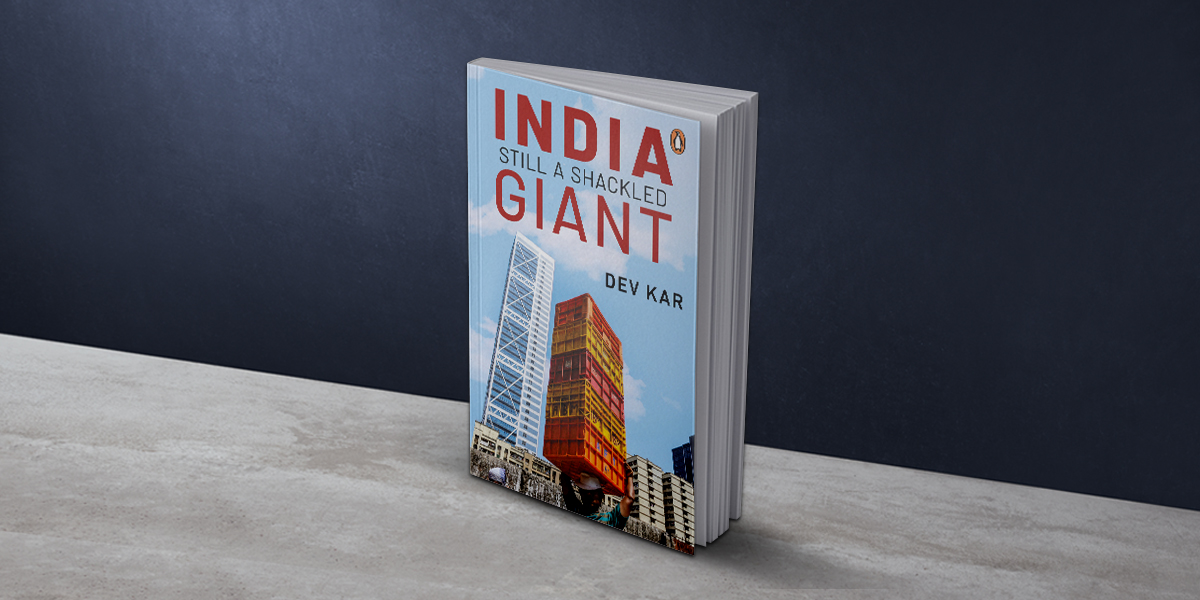
India is one of the largest economies in the world today and it has been predicted that it would become the third largest economy by 2030. Yet, an average Indian is worse off than his counterpart in other developing nations like Algeria, Indonesia, Mongolia and Morocco. The tethers of corruption and fragility have prevented it from becoming an Asian Tiger.
In India: Still A Shackled Giant, Dev Kar, a former senior economist at the International Monetary Fund shines light on why India is still, even after 70 years of independence, unable to reach its full potential to join democratic giants like the United States, Germany, and Japan.
Fragility
Fragility is a state of affairs, consisting of many economic, social, demographic, political, environmental, and security-related pressure points that either strengthen or weaken a nation state. If fragility is left unchecked, the nation can slide towards civil war and break up. The overall fragile states index (FSI) is derived from twelve sub- indices which are: demographic pressures, economic inequality, economy, external intervention, factionalized elites, group grievance, human flight and brain drain, human rights, public services, security apparatus, state legitimacy, and refugees and internally displaced persons (IDPs). (page 15)
India’s overall fragility increased from the ninety-third rank in 2006 to the seventy-second rank in 2018. India’s slide by twenty-one ranks over this period was mainly driven by uneven development (such as rising income inequality), human flight and brain drain, state legitimacy, demographic pressures and security apparatus.
Dirty Politics
There is no doubt that the source of corruption in India is its rotten politics. If politicians can use black money to get elected, criminals can contest elections and win, and if they can all play vote bank politics, what kind of example do they set for the rest of the country? These days, it seems every political party needs criminals to intimidate the opposition, suppress dissent, and extract rent in order to ensure its hold over power. Under the circumstances, there can be neither raj (rule) nor neeti (ethics) left in rajneeti (politics).
Another way of looking at this sad state of affairs is that many voters perceive the criminal politicians to be more effective in delivering government services. I think, either way, from the supply of criminal politicians to the demand for them, they pose a huge problem for any democracy and its governance.
A Taxing Problem
Ever since Independence, India has had two main problems with taxation—a narrow tax base and significant tax evasion. A narrow tax base means only a small portion of India’s population is paying income taxes. Out of a population of some 1.3 billion people, only about 4 per cent file pay income taxes, which make up the largest part of direct taxes. (page 141)
A country trying to raise adequate tax revenues from a narrow base ends up running large fiscal deficits given increasing government expenditures to meet multiple development objectives. Fiscal deficits in turn hamper economic growth and lead to economic instability through rampant inflation, higher interest rates, or increasing foreign debt. It is the poor who suffer disproportionately.
According to the Centre for Monitoring Indian Economy (CMIE), nearly thirty-one million Indians are unemployed and looking for jobs. While economic growth has been humming along around 7–8 per cent per annum recently, the pace of job creation has been poor. While unemployment is naturally an emotive issue in a country of 1.3 billion people with a young workforce, the capacity to generate jobs is not in the hands of any politician, regardless of their promises. The bottom line is that for unemployment to come down during any period, the number of new jobs created must be greater than the number of people entering the labour market during that period. The problem of employment in India is twofold. First, India needs to invest in more education, vocational training and health. Second, there is a need to shrink the size of the informal sector by helping more workers to switch to jobs in the formal sector.
No Care about Healthcare
Healthcare in India still has a long way to go in terms of access to good facilities and reliable doctors, particularly in smaller towns and villages. While the rich in India can afford to get reasonable treatment at a price they can afford, the poor can’t. The quality of public hospitals is extremely poor and they pose serious risks to the life and well-being of patients. Moreover, the credentials of many doctors are suspect. To make matters worse, there are no independent regulatory bodies to accredit, monitor and disseminate reviews of medical providers.
Grab your copy of this book today to know learn about these barriers in detail and discover how India can find the road to redemption.









